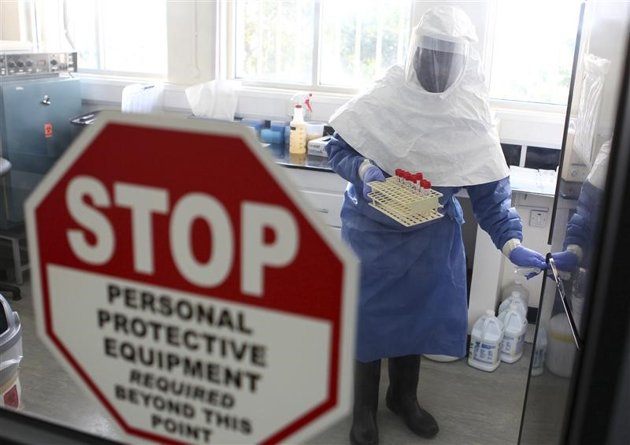
Ebola Hemorrhagic Fever has continued to spread from Guinea to other countries in Western African, with several scares occurring outside of Africa. Travellers showing symptoms of Ebola, which are common symptoms to many other sicknesses in, have been quarantined and tested in Canada, United Arab Emirates, the Philippines, and India, among others. In these cases, patients with flu like symptoms are either quarantined or put under observation, depending on the stage of the illness, and diagnostic tests are run. In all suspected cases outside of West Africa, test have returned negative, as the region is also home to numerous illnesses that cause similar symptoms.
Despite the negative tests, Ebola has made its way to both the US and Europe. In late July, two American citizens were flown into a Center for Disease Control(CDC) facility in Atlanta for treatment, and one Spanish priest was flown into Madrid. Both were humanitarian workers in Africa who had contracted the disease, and were brought home in hopes of better treatment. This was met with some controversy, as concern over containing the spread was voiced by the media and public. The outcry was largely ignored though, as the healthcare professionals responsible for it knew how easy Ebola is to contain in a developed nation.

As part one touched on, it is not the virulence of Ebola that is exacerbating this outbreak, but rather a lack of education and hygiene. There has been no spread from the cases brought back to their home countries as the virus is easily contained with appropriate measures. These patients were brought back to top facilities not just for higher quality care, but also to be used as human test subjects. The treatment, ZMapp, was in development and had yet to reach human clinical trials. On top of being untested, only 5 doses of the treatment existed. Due to being cultivated though genetic splicing of a tobacco plant, and production facilities not being set up, no more of the treatment can be easily produced within a short time frame.
Skipping straight to human testing is extremely uncommon, but not unheard of. Although rarely used, the FDA has a provision that allows for the use of untested medications to be used in critical situations. This has a lot of moral implications, considering that there was not a single test done on human beings, so both the efficacy and side effects of the treatment were entirely unknown. There was no guarantee the treatment would be effective, and if it was, that it wouldn’t also cause serious side effects. Despite this, all three patients went ahead with the treatment.
Of the three patients, two of them are on the road to recovery, while unfortunately the Spanish priest succumbed to the illness. Both American patients are under observation at Emory Hospital in Atlanta, and will continue to be until being cleared. Ebola can be transmitted via semen for up to a month after recovery, but close observance for side effects in this case benefits both the patients and the CDC.

Of the original five doses, the two remaining were shipped to Nigeria to be used there. The selection process has been controversial, but with good reason. Mapp Biopharmaceuticals, the company that produces ZMapp, was hesitant to make the samples available at all, fearing backlash should severe side effects occur. On top of that, the Western world does not want to be seen as experimenting on vulnerable populations, and there are few populations more vulnerable than West African Ebola patients. Still, there are many willing to try a last ditch effort when fighting a disease as deadly as Ebola. If the serum does prove to be successful, Mapp will have to rapidly step up production, although it involves growing tobacco plants and harvesting spliced antibodies, which is a time consuming process. If successful, this means that the world will have a way to deal with the next Ebola outbreak, but this vaccine will most likely not help the current situation.
Developed countries are putting travel advisories on infected countries, and screening arrivals for Ebola, placing any suspected cases in observation or quarantine, depending on severity. Canada has stated, and shown they are ready to deal with potential cases very quickly, as two possible cases were reported, in Saskatchewan and Ontario. In both cases patients were isolated, tested and cleared very quickly. Most developed nations have very similar guidelines in place, so the likelihood of it spreading outside of the developing world is low.
That is small comfort to the people dealing with the disease, and the effects of the fear it generates. In the final part of this series, the countries dealing directly with Ebola, and their direct neighbours will be examined.



